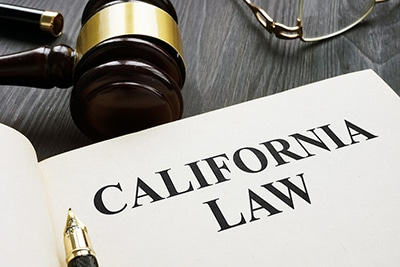
California warranty law is a set of laws designed to protect consumers from defective products. These laws are enforced by the California Department of Consumer Affairs and require manufacturers, sellers and distributors to provide warranties for certain types of goods. Warranty laws in California apply to both new and used products, including vehicles, homes, appliances, electronics and more.
In this blog post, we’ll take a deep dive into the Song Beverly Act, also known as the California Lemon Law, which is one of the most important warranty laws in California, and how this affects California drivers and consumers.
California’s Song Beverly Act
California’s Song-Beverly Act stands as a mighty shield for consumers, protecting their rights in the realm of auto purchases. In the past, individuals who found themselves grappling with defective vehicles in the Golden State were left vulnerable, facing challenges when seeking recourse against auto dealerships and manufacturers. Despite the comforting presence of warranties, these consumers felt like lone warriors taking on formidable opponents armed with legal expertise.
But fear not! Everything took a turn in the year 1970 when the remarkable Song-Beverly Consumer Warranty Act, famously known as the California Lemon Law, was set into place. (Interesting tidbit: this law was aptly named after its architects, Alfred H. Song and Robert G. Beverly, esteemed senators in the California legislature).
Before the enactment of this California lemon law, Californian consumers found themselves grappling with a David versus Goliath scenario, where Goliath held all the advantages. However, the Song-Beverly Act altered the game entirely by leveling the playing field and presenting consumers with powerful tools to take on the automotive industry. With the Song-Beverly Act by their side, consumers can march forward with confidence, knowing that their voices will be heard and their rights upheld.
Despite the protections provided by the Song-Beverly Consumer Warranty Act, navigating the complexities of lemon law cases can be daunting for the average consumer. That’s where we come in. At Lemon Law Associates, we specialize in the ins and outs of the Song-Beverly legislation. Our exceptional team of lemon law attorneys, highly regarded for their track record of trial victories and outstanding settlements, is here to fight for your rights. Whether you’ve purchased or leased a vehicle affected by significant defects impacting its performance, safety, or value, trust us to stand up against the big automakers on your behalf. With our powerful legal representation, you can have peace of mind as we take on the daunting task of holding the auto manufacturers accountable.
How Does The California Lemon Law Protect Consumers?
The California Lemon Law provides robust protection to consumers in several significant ways. Primarily, the law stipulates that if a newly purchased vehicle is found to be defective and the issue persists after a reasonable number of repair attempts, the auto dealer or manufacturer must either replace the vehicle with one of the same quality or refund the purchase price to the consumer.
Importantly, the law doesn’t mandate a fixed number for what constitutes a ‘reasonable’ number of repair attempts. Instead, this number varies based on the severity of the defect and how much it affects the safety and value of the vehicle. In most cases, if the vehicle has been in service and repair facilities for more than 30 days in total for the same or related issues, it’s usually deemed a ‘lemon’ under California law.
In the event of a refund, the manufacturer is obliged to reimburse the full purchase price along with any costs associated with the vehicle’s repair, including taxes, towing charges, and rental car fees. If a replacement vehicle is provided, it must be substantially identical to the vehicle replaced.
Furthermore, this law holds auto dealers and manufacturers accountable for their products and services, ensuring they meet expected standards of quality and performance. The California Lemon Law extends its protections to used and leased vehicles, not just new motor vehicles, further solidifying its role as a comprehensive shield for consumers against a defective vehicle.
Provisions of the Song-Beverly Act
The Song-Beverly Act not only provides the cornerstone for lemon law cases in California but also encompasses several other provisions that protect consumers from deceptive or unfair practices by auto dealers and manufacturers.
Tanner Consumer Protection Act
The Tanner Consumer Protection Act, also known as California’s Auto Fraud Law, exists as an integral component of the state’s consumer protections. Working seamlessly in conjunction with the Song-Beverly Act, it levels the field further against unscrupulous auto dealers and vehicle manufacturers.
The Tanner Consumer Protection Act, codified in California Civil Code § 2985.7, puts forth strict regulations that auto dealers must adhere to when selling motor vehicles. These rules include providing clear and accurate information about the motor vehicle’s condition, history, and previous use. Deliberate withholding of such information or providing false information is deemed illegal under this Act.
For example, if a motor vehicle has been previously returned to the manufacturer due to a defect or it has been involved in an accident, the dealer is required by law to disclose this information to the buyer. Failure to do so can lead to hefty penalties, including a purchase price refund, paying for any consequential damages, and covering the buyer’s attorney’s fees, litigation costs, and court expenses.
The Tanner Act, therefore, acts as a significant deterrent against deceptive practices in California’s auto industry. It empowers consumers, giving them the right to full disclosure and ensuring that they aren’t misled when making their auto purchases. Hence, it complements the Song-Beverly Act by enhancing transparency in the automobile sector and fortifying the consumer’s legal arsenal against potential auto fraud.
Song-Beverly Act Amendments Effective July 2023
Changes to the Song-Beverly Act effective from July 2023 have significantly heightened protections for vehicle buyers in California. At the heart of these amendments is a broadening of the concept of “express warranties”. Failure to comply with these obligations may result in severe penalties and legal consequences for the manufacturer, giving consumers even more leverage in lemon law cases.
Express Warranties
An express warranty typically refers to a written guarantee from a manufacturer or dealer that a product will perform as claimed. Now, under the revised Song-Beverly Act, express warranties for vehicles extend beyond explicit written warranties, incorporating any claims made by manufacturers or dealers in their advertising or promotional campaigns.
The implications for consumers are profound. If a manufacturer or dealer makes specific performance promises in an ad or promotion, these promises now have the force of an express warranty. Any failure to meet these promises can trigger a consumer’s rights under the California Lemon Law. This extension of express warranties thus gives consumers unprecedented protection against misleading advertising.
The new definitions introduced to the “express warranties” with the amendments effective from July 2023 pave the way for more comprehensive protection for vehicle buyers in California. The expansions in these definitions broaden the scope for litigation, potentially making way for individual or class action claims against manufacturers. These claims can demand equitable relief, civil penalties, or both.
Equitable relief can include corrective actions such as repair or replacement of a defective vehicle, or even a refund of the purchase price. In cases where manufacturers have knowingly violated the provisions of the Song-Beverly Act, consumers can petition the court to impose civil penalties. These penalties are not limited to refund or replacement costs but may be up to two times the amount of any actual damages. This punitive measure is designed to deter manufacturers from violating consumer rights.
Moreover, in successful lemon law claims, manufacturers are required to pay the consumers’ attorneys fees. This ensures that consumers are not financially burdened with legal fees and can confidently take on manufacturers without fear of financial hardship. This is a key provision that encourages consumers to seek legal recourse when their rights have been violated.
In the context of class action claims, these penalties can multiply, potentially leading to significant financial consequences for manufacturers. This is a testament to the robustness of the Song-Beverly Act and its amendments, redefining the balance of power between consumers and auto manufacturers, and ensuring that the latter are held accountable for their actions.
Implied Warranties
The July 2023 amendments also provide more explicit definitions for “implied warranties”. An implied warranty refers to unwritten, unspoken promises that a product will be free from defects and fit for the ordinary purposes for which it is used. These implied warranties now expressly embrace broad quality standards. If a new vehicle fails to meet these standards, even in the absence of a specific defect, it may fall under the protection of the California Lemon Law.
The amendments strengthen protections around “consumer warranties” in general. They mandate more robust disclosure requirements, making it harder for dealers to evade their responsibilities through vague or ambiguous warranty terms.
The modifications to the Song-Beverly Act effective as of July 2023 underscore its role as a comprehensive shield for vehicle consumers. By amplifying the power of express and implied warranties, and bolstering consumer warranties, the Act effectively guards against substandard vehicles and unscrupulous practices, offering an even safer purchasing environment for Californian buyers.
California Residents Rejoice
If you’re a resident of California, you’re in luck, because this state has some of the strongest consumer protection laws in the nation. The Song-Beverly Act is just one example of California’s commitment to safeguarding consumers’ rights. With its recent amendments, the Act continues to evolve, keeping pace with the ever-changing landscape of consumer protection and ensuring that vehicle buyers in California have access to full disclosure and fair treatment in their auto purchases.
So the next time you’re looking to buy a vehicle in California, rest assured that you have the Tanner Act and the Song-Beverly Act working in your favor. And if anything goes wrong with your purchase, know that you have powerful legal tools at your disposal to protect your rights as a consumer.
Lemon Law Associates of California
If you find yourself dealing with a lemon vehicle, don’t hesitate to seek legal counsel. A qualified lemon law attorney like those at the Lemon Law Associates of California can help you navigate the complex legal landscape and ensure that your rights are upheld. With the added protections provided by the July 2023 amendments, you can feel confident that justice will be served and your rights as a consumer protected.
To speak to a Lemon Law Attorney near you, contact the Lemon Law Associates of California today at (855)-864-9199. Let us help you fight for your rights and get the compensation and justice you deserve. By staying informed about consumer protection laws and understanding your rights as a buyer, you can make empowered decisions when purchasing a vehicle in California. Don’t let auto manufacturers take advantage of their power – know your rights, exercise them, and protect yourself from unfair practices.
Frequently Asked Questions
What is covered under California Lemon Law?
Under the Tanner Consumer Protection Act and the Song-Beverly Consumer Warranty Act, any new or used vehicle that has a manufacturer’s warranty may be covered under California Lemon Law. This includes cars, trucks, motorcycles, and recreational vehicles.
Does California have an implied warranty?
Yes, California has an implied warranty law that protects consumers from defects in products they purchase. The July 2023 amendments to the Song-Beverly Act further strengthen this protection by explicitly defining and broadening the scope of implied warranties for vehicle buyers.
What is the statute of limitations for Lemon Law claims in California?
The statute of limitations for Lemon Law claims in California is four years from the date of purchase or lease. This means that you have four years to file a claim for a defective vehicle under the Song-Beverly Act, even if the warranty has expired.
Can I file a Lemon Law claim on my own?
Yes, you can file a Lemon Law claim on your own, but it is highly recommended to seek legal counsel from a qualified lemon law attorney. Lemon Law cases can be complex and require detailed knowledge of the laws and regulations. An experienced attorney at the Lemon Law Associates of California can help ensure that you receive the maximum compensation for your case.
What is the express warranty law in CA?
The express warranty law in CA, also known as the Tanner Consumer Protection Act, requires all new vehicle manufacturers to provide a written warranty for their vehicles. This warranty must cover any defects or malfunctions that occur within the first 18 months or 18,000 miles of ownership. If these issues are not resolved after a reasonable number of repair attempts, the buyer is entitled to a refund or replacement vehicle. This law also includes used vehicles under warranty.
What is the Lemon Law buyback in California?
The Lemon Law buyback in California refers to the process of a manufacturer repurchasing a defective vehicle from its owner. After a certain number of repair attempts have been made, if the issues are not resolved, the buyer may be entitled to a refund or replacement vehicle under the Lemon Law. This process is often referred to as a “buyback” because the manufacturer buys back the defective vehicle from its owner.









